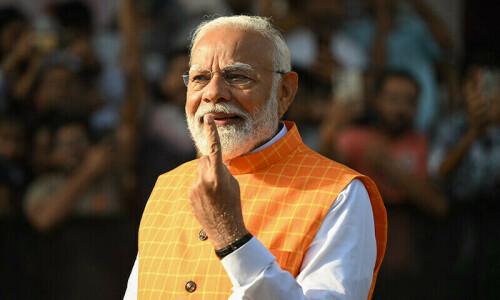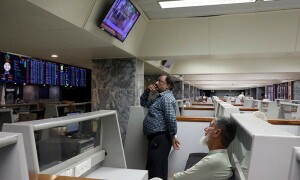ISLAMABAD: Despite growing confidence that an end to health pandemic is in sight, a report released by the United Nations Conference on Trade and Development (UNCTAD) has warned that a viable Covid-19 vaccine will not contain the economic damage.
The report said that the after-effects of the economic damage caused by the pandemic will be felt for a long time in future especially by the poorest and most vulnerable.
The UNCTAD report titled ‘Impact of the Covid-19 Pandemic on Trade and Development: Transition to a New Normal’ provides a comprehensive assessment of the economic knock-ons, projecting that the global economy will contract by a staggering 4.3 per cent in 2020 and warning that the crisis could send an additional 130 million people into extreme poverty.
The way the world economy is set up is partly to blame for the disproportionate impact on the world’s poorest who lack resources necessary to respond to shocks such as Covid-19, the report says.
“Moving rapidly across borders, along the principal arteries of the global economy, the spread of virus has benefited from the underlying interconnections — and frailties — of globalisation, catapulting a global health crisis into a global economic shock that has hit the most vulnerable the hardest,” it added.
The report said the UN Sustainable Development Agenda 2030 will be derailed unless immediate policy actions are taken, especially in favour of the poorest. A better recovery must centre on renewed trade policy that tackles the twin challenges of market concentration and environmental impact, the report says.
It also notes there is a pressing need to reshape global production networks to be more green, inclusive, and sustainable while simultaneously resetting the multilateral system to support the most vulnerable and deliver on climate action.
In the report, UNCTAD tracks the deepening impact of the virus on all areas of the world economy and maps how the crisis has affected global trade, investment, production, employment and, ultimately, individual livelihoods.
It finds that the pandemic’s impact has been asymmetric and tilted towards the most vulnerable, both within and across countries, affecting low-income households, migrants, informal workers and women disproportionately, the report says.
Global poverty is on the rise for the first time since the 1998 Asian financial crisis. In 1990, the global poverty rate was 35.9pc. By 2018, it had been curtailed to 8.6pc but has already inched up to 8.8pc this year and will likely rise throughout 2021.
Additionally, Covid-19 has had an excessive effect on two sectors — tourism and micro-, small- and medium-sized enterprises — which employ many vulnerable groups.
These and other setbacks, such as school closures that threaten 20 years of progress in expanding access to education, especially for girls, will have strong negative impacts on the productive capacity of countries well into the future, the report finds.
The disparities caused by the Covid-19 crisis are glaring, and vaccine production and delivery will likely underscore the limited capacity of most developing and least-developed countries (LDCs) to respond to the crisis.
In the report, the UN’s trade and development body provides a road map for recovery that requires an overdue and opportune shift in the structure of global trade and cooperation.
“Covid-19 has been painful and course-altering, but it is also a catalyst for needed change,” UNCTAD Secretary-General Mukhisa Kituyi said. “We need to reshape global production networks and reset multilateral cooperation for the better.”
Global production networks will play a critical role in producing and distributing the new vaccine, as they have in moving critical medical supplies during the crisis. But vaccine deployment will likely expose long-entrenched inequalities in the global trading system that the report says must change to ‘recover better’, he said.
Published in Dawn, November 26th, 2020















































